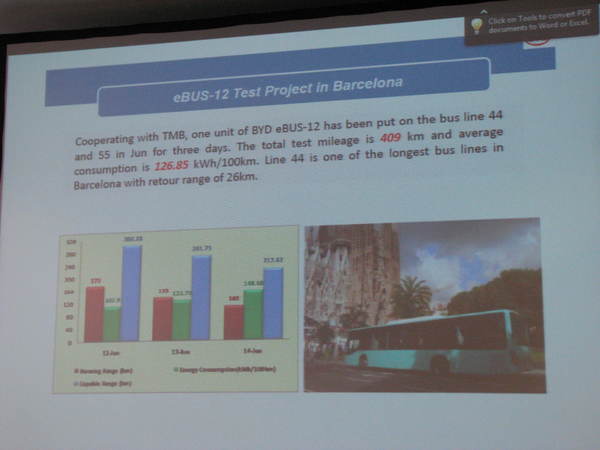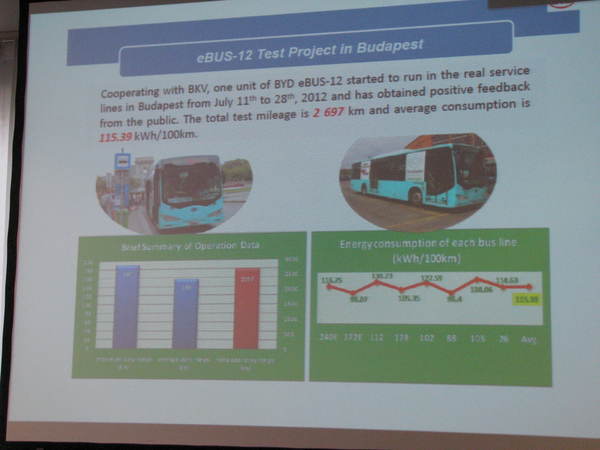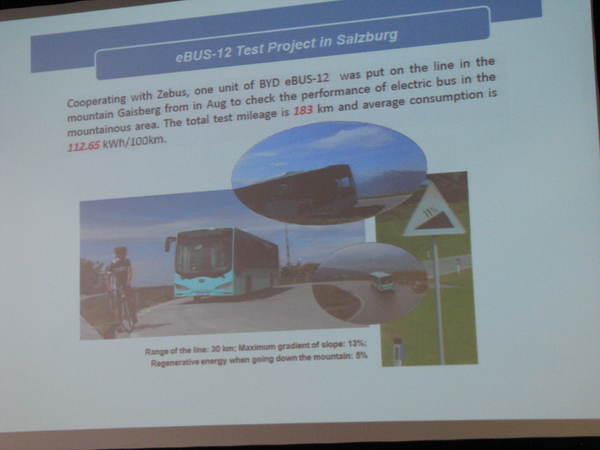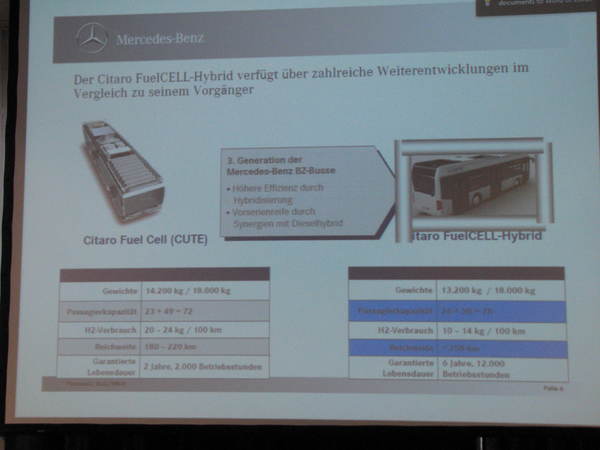2012: Electric Bus Conference MunichGrotesque differences in consumption between electric buses and hydrogen fuel cell buses. Nevertheless, a lot of research money continues to be sunk into hydrogen vehicles.
BYD reported on test drives throughout Europe with a 12 m electric bus. 90 to 140 kWh electricity consumption per 100 km. 
409 km test drives in Barcelona with 126.85 kWh/100 km. 
2697 km test drives in Budapest with 115.39 kWh/100 km 
End of August 2012 183 km Mountain test on the Gaisberg near Salzburg with 112.65 kWh / 100 km. The 840 m from Salzburg Gnigl up to the Gasibegspitze, the battery is at 87%. Down the 840 m again, the battery is charged to 92%. While a vehicle with a combustion engine only converts potential energy into thermal energy when driving downhill, here the battery has been charged by 16 kWh. On a smaller scale, this happens every time you brake at a stop, every time you brake at a red light. 
Mercedes claims that its latest fuel cell bus uses 10 to 14 kg of hydrogen per 100 km. The older model had a horrendous consumption of 20 to 24 kg. 1 kg of hydrogen contains 33 kWh of thermal energy. Electrolysis and compression into the high-pressure tanks require around 45 kWh of electricity for 1 kg of hydrogen. The fuel cell bus therefore requires 350% more electricity than the electric bus. The high cost of producing hydrogen is also reflected in the price: EUR 9.50 per kg (April 2016 Hannover Industrial Fair). Converted by energy content, this corresponds to EUR 2.82 per liter of diesel. The 12 kg of hydrogen average consumption at this price is EUR 114. Diesel buses of this size consume 40 to 45 liters of diesel. The BYD electric bus 90 to 140 kWh of electricity. |



